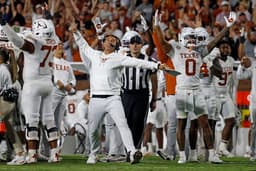Home / Sports / Texas Tech Counsel Urges Rejection of New NIL Enforcement Deal
Texas Tech Counsel Urges Rejection of New NIL Enforcement Deal
23 Nov
Summary
- Texas Tech's general counsel advised against signing the College Sports Commission agreement.
- The agreement mandates cooperation with investigations and compliance with athlete compensation rules.
- Concerns include overly broad definitions and potential retroactive penalties.

The general counsel for Texas Tech has recommended that the university refuse to sign a proposed University Participation Agreement from the College Sports Commission (CSC). This agreement, circulated by the Power 4 conferences, mandates that schools cooperate with investigations and adhere to enforcement decisions regarding athlete compensation rules established by the recent House settlement. The CSC's proposed model includes potential penalties such as loss of revenue and postseason bans for non-compliance.
Eric D. Bentley, Texas Tech University System general counsel, detailed significant objections in a memo to the board chairman. He highlighted concerns that the agreement's broad definitions could compel compliance with future, potentially retroactive, CSC policies. Bentley also expressed unease over a clause that could penalize universities for actions taken by state officials, deeming it unacceptable and an overreach.
The CSC aims to solidify enforcement of revenue-sharing and Name, Image, and Likeness (NIL) rules through this agreement. While Texas Tech has historically been robust in NIL, with significant booster involvement and athlete compensation, the university now faces a decision on whether to accept terms that its legal counsel views as problematic and potentially detrimental.




